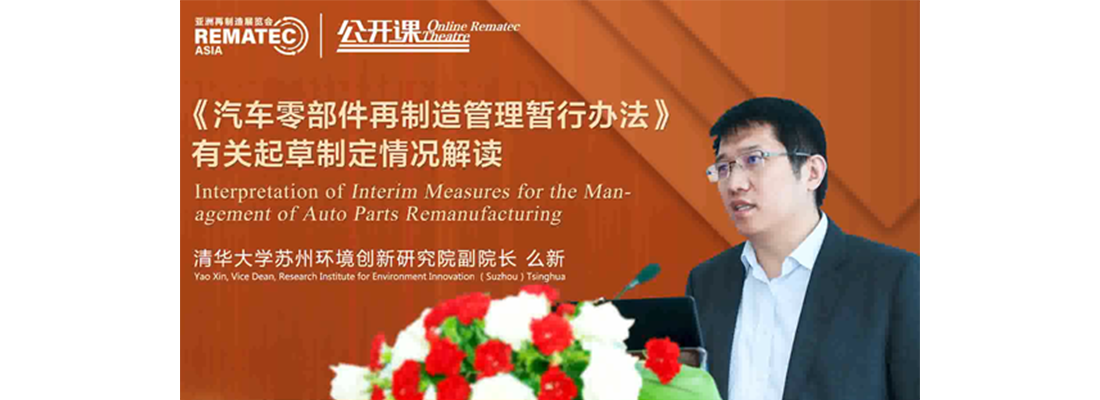Le big mess
Confused? You’re not alone. As the clock ticks down to 29 March, remanufacturing businesses have become increasingly exasperated at the lack of clarity over Britain’s exit from the EU, finds Ian Hall.
Political, technical, legal, emotional: there are myriad perspectives on Britain’s exit from the European Union (EU). While UK and European leaders haggle as the clock ticks down towards Brexit – which, as ReMaTecNews goes to print, remains scheduled for 29 March – the remanufacturing industry has looked on with growing bewilderment and exasperation.
With the terms of this unprecedented divorce highly contentious, business lobbies – both in the UK and on the Continent - have been voicing their frustration with increasing volume as Brexit nears reality and the uncertainty mounts. We approached around 30 businesses and organisations in the UK and the rest of Europe. Many declined to comment or would only provide background.
Supply chain concern
What the Brexit process has laid bare is the extent to which large parts of British industry (and its laws) are entwined with industry in the other 27 EU member countries - particularly, for reman, western European states. Mapping this, and then unpicking it, would be like trying to unscramble an egg.
A report published before the UK’s EU referendum in 2016 by European association Ceemet saw Brexit as a ‘lose-lose’ for both the EU and UK. The analysis warned that the impact of Brexit could trigger a downward spiral in UK gross domestic product (GDP) growth for industry, with the worst affected companies being ‘medium-sized manufacturers in complex global supply chains’. This does not sound ideal for reman.
EEF, the manufacturers’ association, is one of the most influential UK manufacturing lobby groups. Fergus McReynolds, EEF’s director of EU affairs, tells ReMaTecNews that he sees four priorities as regards Brexit for remanufacturers: “First, that there is a meaningful transition period, allowing businesses time to adapt. Second, that frictionless trade is sustained - we have had more than 40 years of supply chains across the EU becoming more integrated. Third, that labour can still flow across borders, not just to address the skills gap in the UK manufacturing sector, but to service the operation of integrated supply chains. Fourth, regulatory elements: one product should be able to service multiple markets.”
At time of writing, the likelihood of a ‘no-deal’ Brexit was increasing. The numbers have likely changed in recent weeks, but McReynolds says: “Data from September 2018 showed that 83% of firms [were] not prepared for a ‘no-deal’ Brexit. It’s very difficult for small- and medium-size companies to prepare for an unknown outcome.”
Moving goalposts
‘Very difficult’ indeed. But reman businesses are doing their best to plan amid the political uncertainty.
Mark Bowen is group sales director at ATP Group, a British firm with almost 200 staff: 65% of ATP’s production is sold overseas, mainly to western Europe. He tells ReMaTecNews: “My job is to strategically plan for the next three years and yet the goalposts with Brexit are moving all the time. Markets dislike uncertainty, which is what we have with Brexit.”
One Brexit-related issue for businesses is currency exchange rates. Bowen says: “At ATP we trade in sterling [GBP], with one small exception, which may be unusual in the reman industry. But we negotiate hard to have our contracts in GBP. The lower value of sterling works both ways – it weakens our hand with procurement [from EU states] but is better for sales. So, what you gain with one hand, you lose with another.”
A colleague of Bowen’s at ATP is Malcolm Morris, who is also chair of the Society of Motor Manufacturers and Traders (SMMT)’s reman committee. With his ATP hat on, Morris picks up on Bowen’s concern about exchange rates. “We have done a few ‘what if’ scenarios [for Brexit], for example looking at what exchange rate fluctuations could mean and what tariff changes could mean,” he explains. “The latter could increase costs by 2-3% or, if we go to World Trade Organisation [WTO] rules, this could be as high as 10%. This would be an increased cost for ATP, and I’m unsure if we could recover this from our customers.”
ATP remanufactures about 6,000 transmissions each year, which rely on spare parts imported from other EU countries. The company spends about £1 million per year on spare parts for gearbox reman work. Morris says: “Some suppliers [elsewhere in the EU] may jump on the bandwagon and put up their prices because of Brexit anyway but, regardless, [post-Brexit] tariff increases of 10% would increase ATP’s bottomline costs by £100,000 in respect of transmissions alone. Firms may be able to claim some of this tax back on exports but the mechanism for doing so is not simple.”
Replacement business
Brexit advocates envisage British firms picking up more business from beyond European shores to more than compensate for any lost business from the EU’s other 27 states. But Morris is not convinced, unable to see upsides to Brexit. He says: “I cannot see any at the moment. In general terms, I don’t think the UK will be able to replace all this European business with American business, and the other post-Brexit markets being touted, such as Australia and New Zealand, are relatively small. For ATP, the auto industry is much more European [than global] and I don’t understand why so much of the discourse is US-focused.”
Another firm watching Brexit closely is Autocraft Drivetrain Solutions, Europe’s largest independent engine remanufacturer and assembler. The firm is reliant on cores being imported to the UK. Mike Hague-Morgan, co-owner and commercial director, tells ReMaTecNews that his biggest concern about Brexit is a ‘no-deal’ scenario in which cores and new components required for reman are stuck in customs or in lengthy queues at ports - combined with extra duties, tariffs and costs associated in stockpiling parts.
Autocraft’s remanufactured engines are sold direct to global automotive original equipment manufacturers (OEMs) via their UK or EU-based subsidiaries, which distribute the engines through their worldwide dealer networks. Autocraft estimates that it exports directly only 4% of engines to non-EU countries. By selling direct to mainly UK and EU-based OEMs, Autocraft has to rely on the export teams in its customers’ businesses to be able to continue to export the engines after Brexit.
Without an EU-UK customs union, British exporters will face a new barrier to trade: ‘rules of origin’. In planning for Brexit, Autocraft has done much work in identifying the rules of origin for the components it requires in both the remanufacturing, and new engine assembly, processes. To be deemed a UKproduct, more than 50% of the product’s content must be deemed local, according to experts. For less complex components, Autocraft sees traceability as relatively straightforward, but when analyzing assemblies, in particular electronics, it sees it as ‘very difficult’ to drill down to the origin of each component within an assembly. Even purchasing from a UK supplier will still require detailed rules of origin analysis if the components are to be designated as local origin, says Hague-Morgan.
Brexit is clearly causing headaches, never mind head-scratching.
Government position
Naturally, ReMaTecNews posed the overarching question – ‘What will Brexit mean for reman?’ - to the UK government’s Department of Environment, Food & Rural Affairs (Defra). The department, which has been holding meetings with increasingly concerned stakeholders from the broader waste sector, directed us to ‘Our Waste, Our Resources: A Strategy for England’, the statement of intent published in December 2018. This contains the word ‘Brexit’ just twice in its 146 pages but has repeated references to reman’s potential (albeit often in aspirational rather than specific terms). This strategy document was long-awaited and its timing as Brexit looms is unlikely to be coincidental. It is interesting to note that Dustin Benton of think-tank Green Alliance told a UK House of Lords select committee in 2017 that “for a very long time, the EU has led waste policy and Defra has effectively become an implementer. Back in 2013, I received a letter from the then minister of state saying: ‘We are effectively getting out of waste policy because we do not feel we need to do anything. Effectively, the EU is doing it for us’. That is not tenable after Brexit”.
Anita Lloyd, who specialises in environmental and sustainability matters, including waste, at law firm Squire Patton Boggs, has pored over the new strategy and is particularly interested in the legal aspects of Brexit for the reman sector. She tells ReMaTecNews: “I see remanufacturing as sitting in between manufacturing and waste management. So, from a legal perspective, I’d be most interested to see what happens to the UK’s waste and producer responsibility laws after Brexit in relation to the status and treatment of reman.”
Tidying up
All the current laws from the EU on manufacturing, waste, and the parts of the EU Circular Economy package that are already implemented, will effectively be copied into UK law as the UK exits the EU, she goes on. “There’s a lot of tidying up to do, but the body of legislation basically remains the same straight after Brexit. It’s more a question of what happens in the months and years after that, and how it may change.”
In respect of the government’s strategy document, she says: “Even though the strategy doesn’t really talk about Brexit, I think this - and the 25-year plan published in January 2018 - was really the government setting out its post- Brexit vision. The government has the opportunity to set out its own stall and policy goals because it won’t necessarily be constrained or directed by EU policy anymore.”
The government’s 146-page document has a section on defining waste, describing UK guidance on ‘end of waste’ as ‘some of the most comprehensive in Europe’ (as well as flagging the existence of the Environment Agency’s re-opened ‘Definition of Waste’ service). But it also says that it will ‘review the end-of-waste criteria and tests that are currently laid out in the Waste Framework Directive’.
Looking at the EU side to this, Lloyd says “The EU definition of waste is very woolly and there’s a lot of case law related to this. In the context of remanufacturing, there are difficult assessments to be made as to whether something has become a waste, and if so, when it can cease to be a waste and has achieved end-of-waste status.”
She continues: “One thing the UK could potentially do post-Brexit is change the definition of waste, for example to specify that products and parts being used for remanufacturing are never classed as waste. Or the UK could make it clearer when end-of-waste status is reached. But then the UK would have to be careful in respect of how that impacts trade with firms in EU countries working to a different [EU] definition.”
Political volatility
With the political situation so volatile (and future uncertain) as this article was being compiled, the most urgent question for most in the industry – along with concern about the exchange rate – was on what terms the UK will leave the EU.
Looking to the medium term and beyond, the question is whether – and how – policy differences will open up. Perhaps the only clear thing is that 29 March isn’t the end of the Brexit story - merely the start of the next chapter
Share your remanufacturing stories with us
Do you have an innovation, research results or an other interesting topic you would like to share with the remanufacturing industry? The Rematec website and social media channels are a great platform to showcase your stories!
Please contact our Brand Marketing Manager.
Are you an Rematec exhibitor?
Make sure you add your latest press releases to your Company Profile in the Exhibitor Portal for free exposure.






